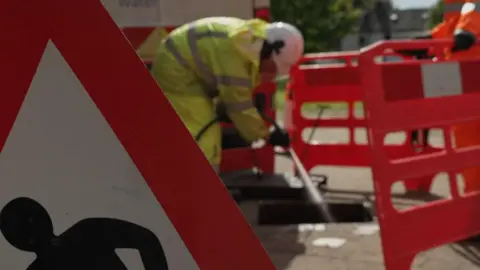As the world approaches critical tipping points, a comprehensive global scientific report shows that resilience – the ability to live and develop with change and crises – must now be placed at the heart of global decision making.
Resilience Science Must-Knows highlights nine insights to connect climate, biodiversity, and development goals, supporting societies to prepare for, respond to, and transform through change and crises.
For the first time, researchers have compiled decades of resilience science research into nine critical Must-Knows, refined through dialogue with decision makers.
With contributions from over 120 experts and 162 decision makers across 134 organisations, the report bridges science, policy and practice and defines how nature, societies and economies can thrive within planetary boundaries.
“Resilience is not about bouncing back to business as usual,” said Dr Albert Norström, Science Director at Future Earth, docent at Stockholm Resilience Centre and co-lead of the report. “It’s about learning from crises, keeping options open, and enabling societies to transform toward fairer, more sustainable futures.”
Dr Maike Hamann and Professor Katrina Brown from the University of Exeter were part of the editorial team.
Dr Hamann said: “Being part of this initiative to highlight key lessons learned from decades of resilience research was an exciting opportunity. For me, it’s great to see the central role of equity in the report, making clear that building resilience must be a just process.”
Professor Brown added: “The report emphasises the importance of connections – amongst people and between people and ecosystems to build resilience to myriad shocks and crises.”
The Must-Knows, which provide decision makers with a guide for navigating an increasingly uncertain world, include:
- Invest today – benefit tomorrow: Resilience investment creates a triple dividend, lowering costs, stimulating growth and strengthening societies.
- Navigate accelerating risk: Faced with increasing and compounding global crises, resilience helps us prepare for uncertainty and cope with shocks.
- Address power imbalances: Failing to address social inequalities, power imbalances, and historical injustices risk reinforcing the very systems that cause vulnerability.
“Resilience Science Must-Knows: Nine Things Every Decision-Maker Should Know About Resilience” was developed by Stockholm Resilience Centre, Future Earth, Global Resilience Partnership, and partners from around the world.
The report arrives ahead of COP30 – ten years after the landmark Paris Agreement – at a pivotal moment for global climate action. The decisions made at COP30 will shape the trajectory of humanity’s future.
As global challenges intensify and cascade across multiple areas of society, resilience must be viewed as a fundamental precondition for coherent global action. The Must-Knows will feed into ongoing policy processes, such as the design and implementation of the National Adaptation Plans (NAPs).
“Resilience is the connective tissue between the Paris Agreement, the Kunming-Montreal Global Biodiversity Framework and the Sustainable Development Goals,” said Dr Cibele Queiroz, researcher at Stockholm Resilience Centre, Knowledge Director at the Global Resilience Partnership (GRP) and co-lead of the report. “We need to start planning differently, seeing our social institutions, ecosystems, policy and community structures as entities that are constantly evolving and changing.”
“Resilience is not a buzzword – it’s the operating manual for our survival on Planet Earth,” said Professor Johan Rockström, Director of the Potsdam Institute for Climate Impact Research and contributor to the report. “We have already breached seven of nine planetary boundaries. Earth’s safety net is fraying — and without urgent action to rebuild resilience, we risk destabilising the very systems that support civilization.”
“A healthy planet is the foundation of human wellbeing and justice – not an environmental add-on, but a defining economic and social imperative,” said Fatima Denton, United Nations University Institute for Natural Resources in Africa, Ghana, and contributor to the report.



